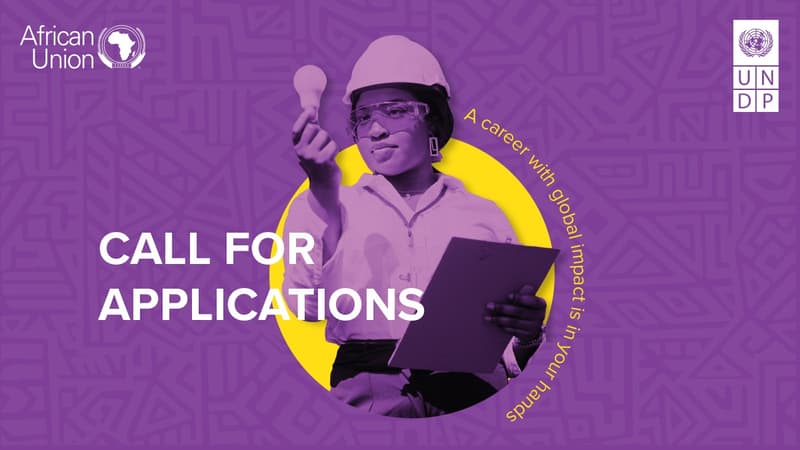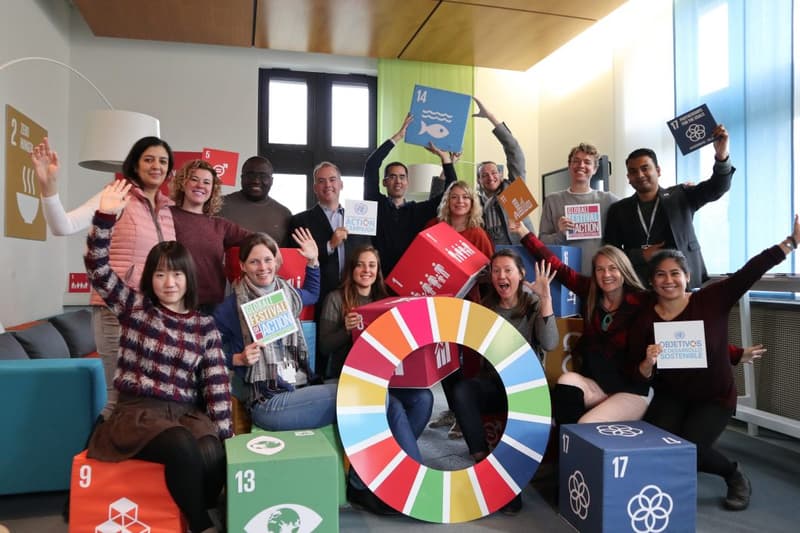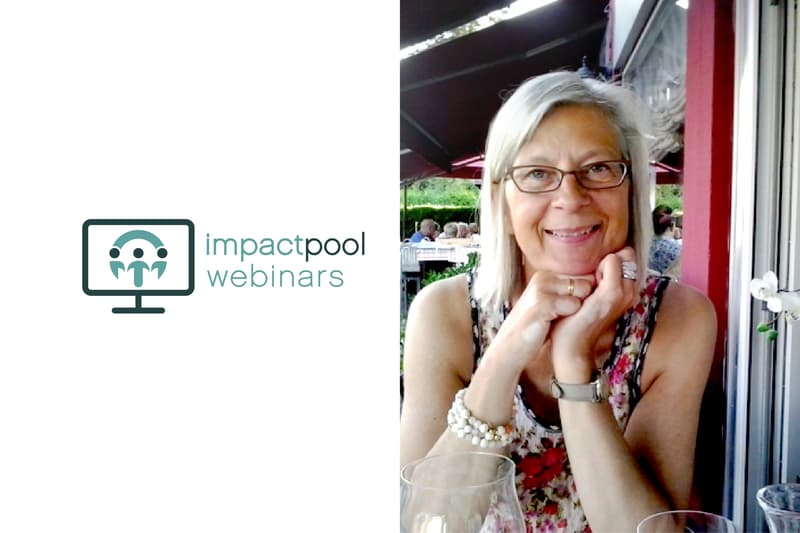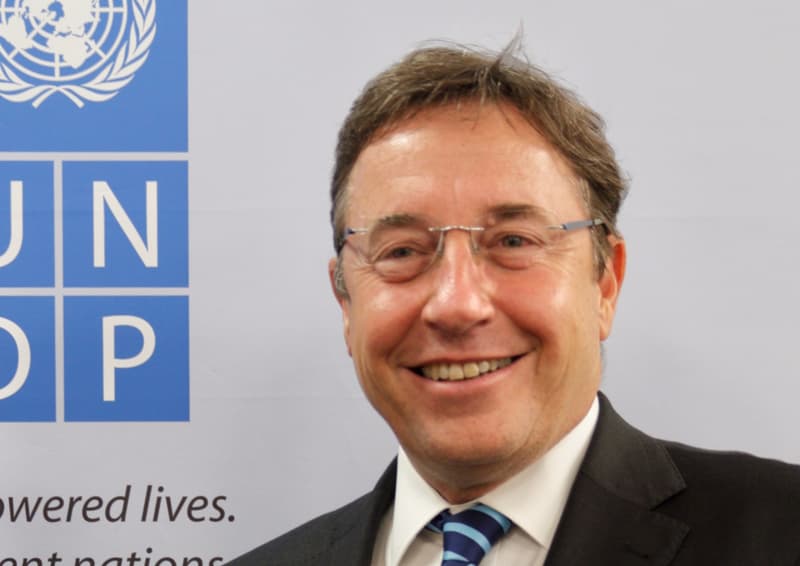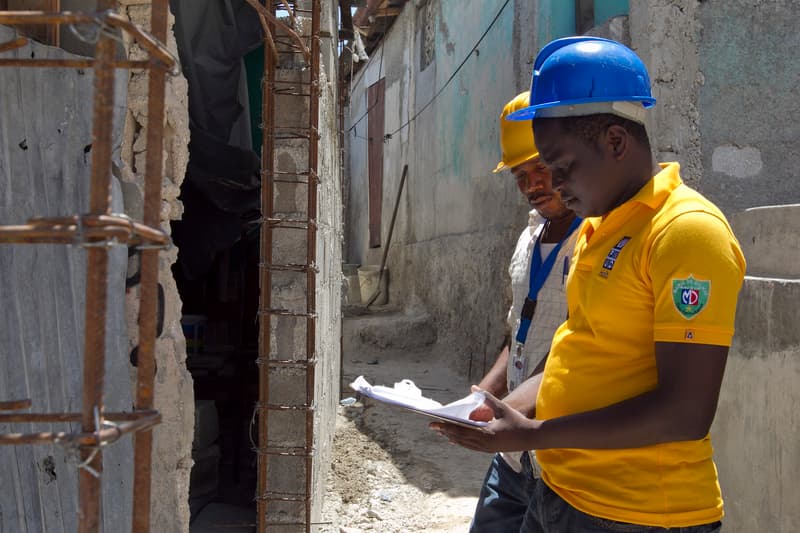Micro, Small and Medium Enterprises (MSMEs) Recovery and Development Specialist
Addis Ababa
- Organization: UNDP - United Nations Development Programme
- Location: Addis Ababa
- Grade: Level not specified - Level not specified
-
Occupational Groups:
- Development Cooperation and Sustainable Development Goals
- Humanitarian Aid and Coordination
- Infrastructure and Urban-Rural development
- Sustainable trade and development
- Disaster Management (Preparedness, Resilience, Response and Recovery)
- Social Entrepreneurship
- Sustainable Business Development
- Closing Date: 2023-12-07
The two-year conflict in Northern Ethiopia has triggered a major humanitarian crisis in Afar, Amhara and Tigray. The toll from the war has been enormous: significant loss of lives; more than 2.6 million IDPs needing humanitarian assistance; large-scale damage to infrastructure and services, estimated by the Government at USD 20 billion; and profound adverse effects on development, hamstringing Ethiopia’s ambitious economic and governance reform programmes.
On 2 November 2022, in Pretoria, an Agreement for Lasting Peace through a Permanent Cessation of Hostilities was signed between the Government of the Federal Democratic Republic of Ethiopia (GoE) and the TPLF. Led by the AU, the Peace Agreement has ended active combat in Northern Ethiopia and raised hope for a gradual restoration of services and humanitarian operations in the region. This wide-ranging agreement committed, among other things, to an immediate and permanent cessation of hostilities, the restoration of federal authority in Tigray, the creation of an interim administration pending regional elections, disarmament, demobilization and reintegration (DDR) of ex-combatants (XCs), resumption of unhindered humanitarian access, the restoration of essential services, reintegration of internally displaced persons (IDPs) and returning refugees, transitional justice, social cohesion and reconciliation, and recovery and reconstruction.
It is in this context that UNDP has developed a ‘Peace Support Programme/Facility (PSP/F)’ nested within the Resilient Recovery and Reconstruction Framework (3RF) but focused on urgent actions over the next 24 months to stabilize conditions, restore a sense of normalcy and deliver a first peace dividend to conflict-impacted populations. The strategic goal of the PSP/F is to contribute toward an irreversible peace process in Northern Ethiopia (Afar, Amhara and Tigray). This will be pursued through an actionable set of measures that can build trust between communities and legitimate Ethiopian authorities and lay the foundations for recovery, peacebuilding, and sustainable development, founded upon country leadership and ownership.
Working within the broader framework of 3RF, the PSP/F will focus on the following windows:
Window 1: Local Governance, Human Rights and Social Cohesion
Window 2: Basic Social Services (health, nutrition, education, WASH, protection)
Window 3: Economic Revival (enterprises and agriculture, demining)
Window 4: Demobilization and Reintegration of Ex-Combatants
Window 5: Solutions to Internal Displacement
The war has significantly affected businesses including micro and small enterprises and disrupted their function and operation. This in turn has affected the livelihoods of thousands of people either in losing jobs or reducing income. It is with this intention that the PSP has a economic revival window with the aim to support MSMEs to recover, restart and restore their business operation. Various support packages such as small grants for informal and micro enterprise, provision of soft loans, business development support and others are designed to support for the revival of these businesses.
The Micro, Small and Medium Enterprises (MSME) Development Specialist is responsible to spearhead the work linked with Windows 3: Economic Revival (enterprises and agriculture, demining). The MSME Specialist’s work focuses on implementation of interventions to pave the way for full-scale recovery and reconstruction of business by restarting, restoring and sustaining local economic activity as well as restoring state capacity, both required to revive local economic development; reconnecting local economies that have been disconnected by conflict, including trade in essential goods and services. The incumbent shall be embedded under the Economic and Social Recovery unit. Main responsibilities shall be:
- Conduct high level policy analysis and advocacy initiatives critical for the recovery of businesses in the northern Ethiopia including start-ups.
- Demonstrate technical leadership in programme planning, implementation and evaluation in the area of MSME ecosystem reform and development under the peace support initiative of the region.
- Deepen business solutions to respond to the crisis and recovery of communities through multi-stakeholder engagement and partnerships.
- Facilitation of knowledge building and management on small businesses recovery and development in the crisis context
- Facilitate Private sector engagement
Conduct high level policy analysis and advocacy initiatives critical for the recovery of businesses in the northern Ethiopia including start-ups.
- Maintain a deep and up-to-date overall understanding of the policy, legal, regulatory, institutional, financing, and operational issues affecting the development of MSMEs in Ethiopia.
- provide specialist advice on a timely basis to UNDP, Government, and other partners on significant policy, regulatory, institutional, financing, and operational to enable the crisis management and recovery effort of MSME development in the northern Ethiopia.
- Provide overall support and facilitation of entrepreneurship and business development services, development of instruments and tools for improved financing of MSMEs, technology adoption/adaptation/diffusion, linkages with TVETs and other training institutions and special measures to expand the role of women as owners and managers of enterprises.
- Contributions to studies, surveys and trainings for project and country office staff and other relevant stakeholders/partners in designing crisis response and recovery interventions to promote peace and stabilization interventions targeting small businesses.
- Support efforts to strengthen capacity of the Government, including for the RRR offices in northern Ethiopia to boosting livelihoods through utilizing businesses to spur the rehabilitation work.
- Support acceleration and re-establishment of trade links between conflict-impacted areas, especially but not only between Tigray and the rest of Ethiopia.
- Ensure adherence of UNDP-supported work to safeguards: HACT, ESS, human rights, ‘leaving no one behind’, and ‘doing no harm’, updates risks and risk mitigation, to inform future plans and progress on implementation.
- Forge close and practical working relationships with the humanitarian cluster system to ensure that HDP nexus issues are addressed on the ground,
- Ensures that approaches to gender equality are integrated into all aspects of planning, budgeting, implementation, monitoring, and evaluation.
Demonstrate technical leadership in programme planning, implementation and evaluation in the area of MSME ecosystem reform and development under the peace support initiative of the region.
- Design and formulate programmes and projects for MSME ecosystem reform and development in
restarting business activity at-scale, targeting start-up and survival of MSMEs, with a particular focus on women-owned or managed enterprises.
- Facilitate business support and restoration of market infrastructure, at a minimum in towns and larger settlements.
- Manage, support and coordinate timely, transparent and effective implementation of project interventions under window 3: Economic Revival (enterprises and agriculture, demining) collaborating closely with implementing partners and responsible parties at federal and regional levels.
- Conduct field level monitoring of progress in activity implementation, challenges and issues that impact the pace and quality of interventions under window 3.
- Identify specific risks that may threaten achievement of intended results. Identify and monitor risk management actions using a risk log. This includes monitoring measures and plans required as stipulated in the peace support programme.
- Measure performance of the interventions through conducting monitoring and evaluation and capturing the lessons learnt for next level program design.
- Ensure alignment of the MEME development work of the PSP with that of the regular program in the country office such as with Innovative Finance Lab and ensure linkage and synergy is created.
Deepen business solutions to respond to the crisis and recovery of communities through multi-stakeholder engagement and partnerships.
- Establish and sustain an active network of experts working on MSME issues in Ethiopia, whether resident or non-resident, that enables productive dialogue and solutions identification as well as collaboration on analytics and advocacy related to the peace and stabilization initiatives of the northern Ethiopia.
- Develop and sustain deep and wide-ranging policy and programmatic partnerships with the private sector at regional levels, especially MSMEs themselves, financial institutions, service delivery organizations supporting MSMEs and other relevant actors.
- Engage in innovative fundraising/resource mobilization strategy that elicits financial support from a wide range of private, non-profit and public sector partners, both domestic and external, to sustain and expand the peace support programme in northern Ethiopia.
- Represent UNDP at various technical fora related to MSME development in the region such as UN inter-agency technical working groups, donor technical working groups and other bodies.
- Facilitate and strengthen national and local government-led or co-led platforms and capacity on business solutions in close coordination with peace-building actors such as the working groups in Tigray and Afar and Amhara.
- Identify and collaborate with financial institutions (banks and MFIs) to work with the PSP program in advancing access to finance for affected communities including businesses and vulnerable people.
Facilitation of knowledge building and management on small businesses recovery and development in the crisis context.
- Identification of sources of information related to MSMEs and jobs in the various sectors and synthesis of good practices and lessons learnt directly relevant to programme implementation and policy development.
- Enable and support in-depth assessments of UNDP and national programmes to identify lessons learned and good practices as well as contribute to knowledge networks and communities of practice.
- Prepare knowledge products and support the public-private sector consultation and dialogue through supporting the dialogue structure on policy issues.
- Knowledge, good practices and lessons are captured regularly, as well as actively sourced from other projects and partners and integrated back into the programme.
Facilitate Private sector engagement
- Supporting the development of private sector including MSMEs through policy, capacity and institutional building
- Private sector engagement as partner in advancing sustainable development and crises response and recovery.
- Procurement in which private sector provides goods and services to UNDP within a commercial contract maintaining the firewall between partnerships and procurement process.
- Develop, co-creates and/or deploys solutions to development challenges, leveraging private sector technologies, innovations and expertise or services and products to accelerate the recovery and revival of businesses and livelihoods in the target areas.
Institutional Arrangement and Reporting Lines
The MSME Specialist will work under the direct supervision of D/Director, Peace Support Office - Peace Support in Northern Ethiopia. The incumbent shall also discharge duties and responsibilities in close collaboration with wide range of stakeholders including but not limited to Team Leaders(TLs) at UNDP Country Office(CO), in particular with the Inclusive Economic Transformation (IET) unit as well as with relevant regional bureaus and offices, development and humanitarian partners at UN and I/N NGOs and local communities in support of UNDP’s institutional strategy and strategic plan in support of the government of Ethiopia’s policies and strategies for sustainable enterprises development. The required qualifications and experiences are described in the sections below.
Achieve Results: LEVEL 3: Set and align challenging, achievable objectives for multiple projects, have a lasting impact
Think Innovatively: LEVEL 3: Proactively mitigate potential risks, develop new ideas to solve complex problems
Learn Continuously: LEVEL 3: Create and act on opportunities to expand horizons, diversify experiences
Adapt with Agility: LEVEL 3: Proactively initiate and champion change, manage multiple competing demands
Act with Determination: LEVEL 3: Think beyond immediate task/barriers and take action to achieve greater results
Engage and Partner: LEVEL 3: Political savvy, navigate the complex landscape, champion inter-agency collaboration
Enable Diversity and Inclusion: LEVEL 3: Appreciate the benefits of a diverse workforce and champion inclusivity
Cross-Functional & Technical competencies
Business Management – Results Based Management: Ability to manage programmes and projects with a focus at improved performance and demonstrable results
Business Management – Partnerships Management: Ability to build and maintain partnerships with wide networks of stakeholders, Governments, civil society and private sector partners, experts and others in line with UNDP strategy and policies
Business Development – UNDP Representation: Ability to represent UNDP and share UNDP knowledge and activities; advocate for UNDP, its values, mission and work with various constituencies
2030 Agenda: Peace – Conflict Prevention, Peacebuilding and Responsive Institutions: Community engagement for prevention, response, and social cohesion; Conflict Analysis and conflict sensitivity; Peacebuilding and Reconciliation; Rehabilitation and Reintegration; Restoration of local government capacity (post-crisis); National and sub-national capacities for planning, financing, coordination and crisis management; Sustaining Peace (including financing) peacebuilding and transitions
2030 Agenda: Prosperity – Recovery Solutions and Human Mobility: Area Based Development; Economic Transition in post-crisis settings; Jobs and Livelihoods; Forced Displacement Incl. durable solutions; Reintegration (Refugees/IDPs); Women's Economic Empowerment
2030 Agenda: Engagement and Effectiveness – Crisis and Fragility Policy and Engagement: Data/ Analytics for early warning and crisis management; Humanitarian-Development Peace (HDP) Nexus; Recovery and Peace Building Assessments
Required Skills and Experience
- Advanced university degree(master’s degree or equivalent) in economics, other social sciences, development studies, Business administration or management, project management or related fields of study is required.
- A first-level university degree in similar fields in combination with two additional years of qualifying experience may be accepted in lieu of the advanced university degree.
- At least five years (with Bachelor’s) and (seven years with a Master’s) of progressively responsible in the implementation and management of multi-donor and multi-sector post-conflict recovery and development programmes/projects at national or international levels is required.
Language:
- Fluency in spoken and written English and local language of the duty station is a requirement.


